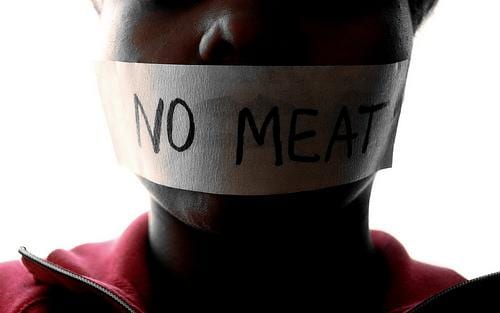Teenagers can thrive on a vegetarian diet as long as they eat a balanced diet full of nutritious food. As with any diet, variety is key to ensuring adequate nutrition. The teenage years—from 13 to 19 years old—are a time of rapid growth and changes. Teens need to make sure they’re getting enough calories, iron, calcium and essential fatty acids.
Types of Vegetarians
When a teen refers to himself as vegetarian, he probably doesn’t eat any meat, such as beef, pork, chicken or fish. Not all vegetarians are on the same diet, though. Lacto-ovo vegetarians don’t eat meat but do eat dairy products and eggs. Subsets of this diet include lacto vegetarians, who eat dairy but not eggs, and ovo vegetarians, who eat eggs but not dairy. Vegans don’t eat any animal products—no meat, dairy products, eggs or honey. Vegans also don’t wear clothing derived from animals, like wool or leather.
Vegetarian Diets Are Healthy
Unless a vegetarian teen’s diet consists of pizza, potato chips and cereal, teens (and parents) won’t have to worry about negative health impacts of not eating meat. Simple planning is all that’s required to ensure proper nutrition. Teens have to make sure they’re getting enough calcium—found in soy products, dairy products, green leafy vegetables and fortified beverages—and iron, which is obtained from beans, seeds, soy products and greens. Zinc is needed for proper immune system functioning and is found in beans, nuts, seeds and certain fortified foods.
Vitamin B12 maintains healthy nerve cells and red blood cells and is especially important to vegans, who cannot get a reliable source of the nutrient in their diet. Teens must take a multivitamin and consume plenty of nutritional yeast and fortified beverages.
What About Protein?
Vegetarian teens must be prepared to tell people how they get enough protein in their diet. The answer is simple—as long as teens consume enough calories, they’re probably getting plenty of protein. There is no need to combine foods to form a “complete” protein. Instead, make sure teens eat tofu, meat substitutes (like soy hot dogs), beans and whole grain foods—all of which are high in protein.
Vegetarian Teens Need Support
If your teen chooses to become vegetarian or vegan, don’t freak out. Vegetarian teens need support, especially from their parents. A non-meat diet can be healthier than a conventional American diet and may give your teen something to be passionate about. Teens become vegetarian for many reasons. Some do it for animal rights, because they disagree with the killing of animals for food, and others do it for environmental or health benefits or simply because they don’t like the taste of meat. Either way, a vegetarian diet is safe and simple to accommodate.





